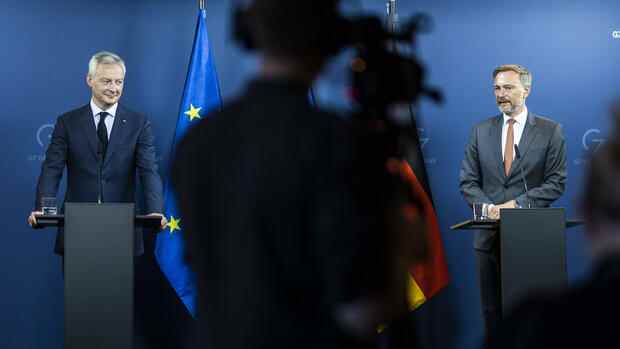Cannibalism – this accusation is in the room and says everything about how the German XXL rescue packages for companies and citizens in the rest of Europe are perceived: as a danger. The criticism of the federal government’s plans unites the Baltic and Hungarians, the Italians and the French. Where the traffic light peaks see a “defense shield” against Russian blackmail attempts, our neighbors recognize German economic nationalism.
In Berlin you no longer understand the world. The criticism is justified: The “double boom” with which the traffic light coalition wants to get the country through the winter is politics according to the motto: “What’s good for Germany is good for Europe.” Many top German politicians are actually convinced of that – And that’s exactly the problem.
Coating one’s own interests with a European flag has a long, unpleasant tradition in Germany. Think of the Nord Stream 2 debacle: during the construction of the Baltic Sea pipeline, Germany also tried to convince the other EU states that its own actions were an expression of strategic foresight from which all of Europe would benefit. Warnings from the Baltics and Poles that the “energy partnership” with Moscow was a trap were dismissed in Berlin with staggering arrogance.
Ideologically justified nuclear phase-out
Germany also draws resentment with its ideologically justified refusal to seriously consider the nuclear phase-out. The crisis requires “whatever it takes” measures, the Berlin coalition partners operate clientele politics. Germany has gambled away the favor of its neighbors. This is the sounding board that the double boom hits now. Carrying on as before leads to offside. “Germany first” means: Germany stays alone.
Top jobs of the day
Find the best jobs now and
be notified by email.
Still, so far the EU has responded to Russian aggression with remarkable unity. Vladimir Putin underestimated Europe’s economic will to resist just as much as the fighting strength of the Ukrainian army. But it is also true that conflicting interests within Europe are now becoming increasingly apparent.
The winter will demand a lot from Europeans. It is questionable whether the willingness to make sacrifices will be sufficient if the purchasing power of the citizens continues to dwindle, businesses close and the continent is plagued by power failures. This is precisely why it is important that Germany lives up to its responsibility as a leading nation.
That doesn’t mean scrapping national plans to tackle the energy crisis. But it requires addressing the reservations of neighboring countries. Due to its sheer economic power, Germany can afford to set up aid programs that overwhelm other EU countries. To talk of cannibalism, as Hungary’s riot prime minister Viktor Orbán is doing, is an exaggeration, but the risk of distortion of competition is hard to deny.
Europe must not allow itself to be divided
If there is a subsidy race, the Federal Republic will win it. But in the end everyone will lose – except for one: Vladimir Putin. When Europeans lapse into national egoism, the aggressor has achieved an important goal.
Germany therefore does not have to go along with everything that other Europeans want. There are good arguments against a gas price cap; the risk of alienating suppliers is enormous. But the EU Commission’s proposal to set up a credit program to mitigate the crisis is worth discussing.
The concept for joint gas purchasing has also been on the table for months. So far it has been blocked by the Chancellery, to the annoyance of our neighbors. Many Germans are not aware of how much the Federal Republic’s reputation in Europe has suffered. It’s time to invest in recovery.
More: EU partners are increasing pressure on Finance Minister Lindner because of the “double shot”.
